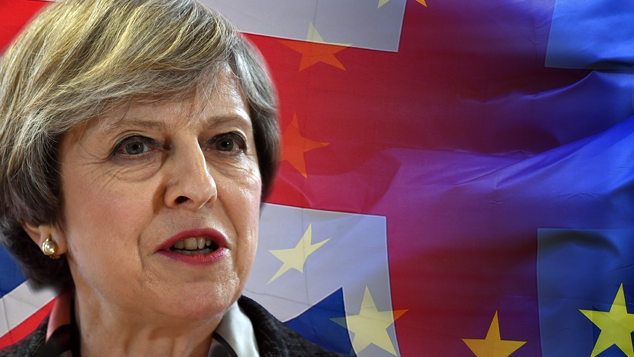Three scenarios for Britain’s post-Brexit future
With Article 50 to be triggered soon, Matthew Partridge looks at some of the most likely options available to Britain after we leave the EU.

Get the latest financial news, insights and expert analysis from our award-winning MoneyWeek team, to help you understand what really matters when it comes to your finances.
You are now subscribed
Your newsletter sign-up was successful
Want to add more newsletters?

"Winning was easy, young man. Governing's harder"
Hamilton, written by Lin-Manuel Miranda
When he decided to hold the EU referendum, David Cameron hoped for a comfortable victory. Even if it turned out to be close, the June date meant that that the long summer holidays, dominated by the football and the Olympics, would have allowed any passions generated by the campaign to die down. By the time parliament restarted in September, and markets resumed major activity, the referendum would seem like a distant memory, leaving him free to focus on building a "legacy". Of course, he didn't have any plan for what would happen in the event of defeat, as shown by his resignation on the morning after the voter.
Try 6 free issues of MoneyWeek today
Get unparalleled financial insight, analysis and expert opinion you can profit from.

Sign up to Money Morning
Don't miss the latest investment and personal finances news, market analysis, plus money-saving tips with our free twice-daily newsletter
Don't miss the latest investment and personal finances news, market analysis, plus money-saving tips with our free twice-daily newsletter
Naturally, David Cameron wasn't the only one who was hit for six by the result. Indeed, it's become clear that many of the Leave campaign didn't have a clue about what to do in the event of a victory. Days after the vote, Boris Johnson attracted derision for a newspaper column that implied that UK would retain the status quo apart from ditching most European regulations. So what are the options and how much political support do they have?
Soft Brexit
Since the majority of MPs, including Theresa May, the favourite for the Conservative leadership, supported Remain, a Norway-style deal would seem to command the most support across the political spectrum. Despite its flaws, it would also retain most of the immediate benefits while allowing the UK to ditch some of the unpopular areas, like agricultural and fisheries policies. Polls suggest that enough leavers support it to give it a majority. Indeed, a YouGov poll a fortnight before the vote showed that 57% of voters would support this, with only 24% opposing it.
So, what's the catch? The one big problem is that EEA membership involves accepting freedom of movement. Since immigration was at the heart of the Leave's campaign, opponents of any deal could cry foul. In her pitch for the Conservative Party leadership, Theresa May promised to introduce controls on freedom of movement. While an EEA style deal could probably win a second referendum, few politicians want to run the risk, at least not immediately. This means that the current consensus is "Norway-Plus" EEA membership plus controls over migration. Whether Europe is willing to offer this deal is another issue.
A looser trade deal with the EU
"WTO Rules": the UK to be treated like any other country
Get the latest financial news, insights and expert analysis from our award-winning MoneyWeek team, to help you understand what really matters when it comes to your finances.

-
 8 of the best properties for sale with minstrels’ galleries
8 of the best properties for sale with minstrels’ galleriesThe best properties for sale with minstrels’ galleries – from a 15th-century house in Kent, to a four-storey house in Hampstead, comprising part of a converted, Grade II-listed former library
-
 The rare books which are selling for thousands
The rare books which are selling for thousandsRare books have been given a boost by the film Wuthering Heights. So how much are they really selling for?